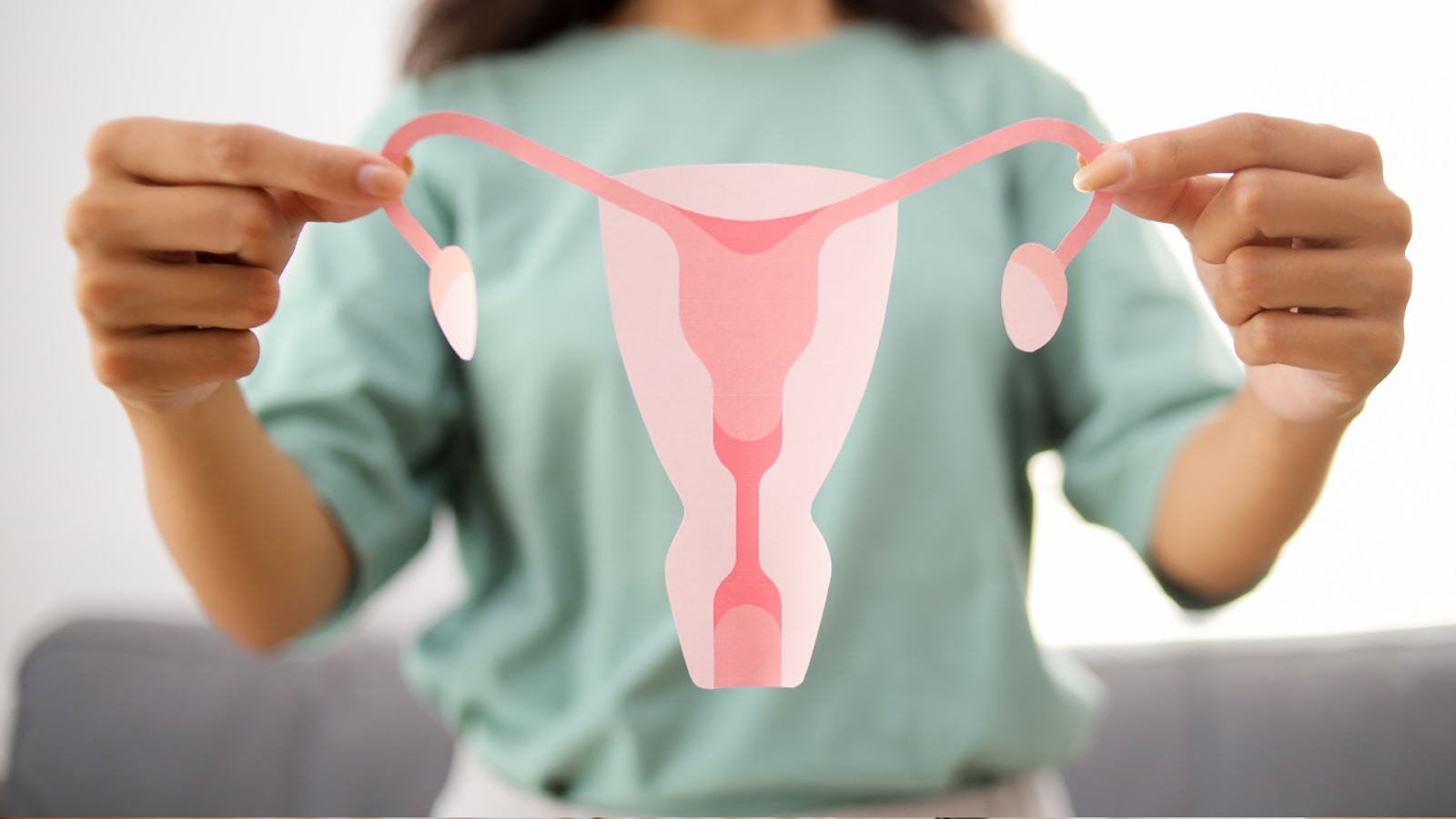Perimenopause is a transitional phase that many women experience before reaching menopause, often accompanied by a variety of physical and emotional symptoms. However, because its signs can be subtle or easily confused with other conditions, many women find themselves wondering, "Is this really perimenopause?" Understanding the key indicators can help you recognize this phase early and seek appropriate care. This article will explore the common signs of perimenopause, why early recognition matters, and how modern telehealth services like Doctronic.ai can support you through this journey.
 What Is Perimenopause and Why Does It Matter?
What Is Perimenopause and Why Does It Matter?
Perimenopause, often called the menopausal transition, is the time leading up to menopause when a woman’s body begins to produce less estrogen and progesterone. This phase can last anywhere from a few months to several years, typically starting in a woman’s 40s but sometimes as early as the mid-30s. It ends when a woman has gone 12 consecutive months without a menstrual period, marking the onset of menopause. During this transitional phase, women may experience a variety of physical and emotional changes, including hot flashes, night sweats, and sleep disturbances, which can significantly affect their quality of life.
Recognizing perimenopause is important because the hormonal fluctuations can cause a range of symptoms that impact daily life and health. Early identification allows for better management of symptoms and helps prevent complications such as bone density loss or cardiovascular issues. Moreover, understanding what’s happening in your body can alleviate anxiety and empower you to make informed health decisions. It's also worth noting that lifestyle factors, such as diet, exercise, and stress management, can play a pivotal role in how a woman experiences this transition, making it essential to adopt a holistic approach to health during this time.
Why Perimenopause Symptoms Are Often Overlooked
One of the challenges with perimenopause is that its symptoms can mimic those of other conditions, including thyroid disorders, depression, or chronic fatigue syndrome. Additionally, many women attribute changes like irregular periods or mood swings to stress or aging, delaying medical consultation. This is where having access to reliable, evidence-based medical advice becomes crucial. Furthermore, societal norms often discourage open discussions about menopause and its precursor, leading many women to suffer in silence, unaware that their experiences are shared by countless others.
It’s important to foster an environment where women feel comfortable discussing their health concerns with healthcare providers. This includes understanding that perimenopause is a natural phase of life, rather than a medical condition to be ashamed of. Support networks, whether through friends, family, or online communities, can provide valuable insights and encouragement. By sharing experiences and coping strategies, women can better navigate this transitional period, ensuring they prioritize their health and well-being during what can be a challenging time.
Common Signs and Symptoms of Perimenopause
Perimenopause manifests through a variety of symptoms, which can vary widely in intensity and duration from one woman to another. Here are some of the most common signs to watch for:
Irregular Periods
One of the hallmark signs of perimenopause is a change in menstrual cycle patterns. Periods may become irregular, with variations in flow, length, and frequency. Some women experience heavier or lighter bleeding, while others notice skipped cycles. These changes occur because fluctuating hormone levels affect the ovulation process. Additionally, the unpredictability of menstrual cycles can lead to heightened anxiety and stress, as women may find it challenging to plan activities or events. Keeping a menstrual diary can help in tracking these changes and discussing them with a healthcare provider.
Hot Flashes and Night Sweats
Hot flashes are sudden feelings of heat that spread over the body, often accompanied by sweating and flushing. Night sweats are hot flashes that occur during sleep, disrupting rest. These symptoms are caused by changes in the body’s temperature regulation linked to declining estrogen levels. The intensity and frequency of hot flashes can vary; some women may experience them only occasionally, while others might have them multiple times a day. Lifestyle changes, such as avoiding triggers like spicy foods, caffeine, and alcohol, can help manage these symptoms. Additionally, some women find relief through relaxation techniques, such as yoga or meditation, which can also improve overall well-being.
 Mood Changes and Cognitive Effects
Mood Changes and Cognitive Effects
Many women report mood swings, irritability, anxiety, or depression during perimenopause. Cognitive symptoms such as difficulty concentrating or memory lapses, sometimes called "brain fog," are also common. These changes can be distressing but are often temporary and manageable with the right support. Engaging in regular physical activity, maintaining a balanced diet, and seeking social support can significantly improve mood and cognitive function. Some women may also benefit from counseling or therapy to navigate these emotional fluctuations, helping them to develop coping strategies and resilience during this transitional phase.
Sleep Disturbances
Difficulty falling asleep or staying asleep is frequently reported during perimenopause. Night sweats can exacerbate sleep problems, leading to fatigue and reduced quality of life. Establishing a calming bedtime routine, such as reading or practicing relaxation exercises, can promote better sleep hygiene. Furthermore, creating a comfortable sleep environment—cooling the bedroom, using breathable bedding, and minimizing light and noise—can also help mitigate sleep disturbances. For some women, discussing sleep issues with a healthcare provider may lead to effective treatments or lifestyle adjustments that enhance sleep quality.
Changes in Sexual Health
Lower estrogen levels can cause vaginal dryness, discomfort during intercourse, and decreased libido. These changes can affect intimate relationships and overall well-being. Open communication with partners about these changes is crucial, as it can foster understanding and intimacy. Many women find that using water-based lubricants or vaginal moisturizers can alleviate discomfort, while others may explore hormone therapy options under the guidance of a healthcare professional. Additionally, engaging in regular sexual activity can help maintain vaginal health, as it promotes blood flow and elasticity in the vaginal tissues.
Physical Changes
Other physical symptoms include weight gain, particularly around the abdomen, thinning hair, and changes in skin texture. Some women may also experience joint pain or headaches. These changes can be attributed to hormonal fluctuations and the natural aging process. Incorporating a balanced diet rich in whole foods, along with regular exercise, can help manage weight and improve overall physical health. Additionally, skincare routines that focus on hydration and sun protection can help combat changes in skin texture. Staying proactive about health and wellness during this time can empower women to embrace this transition with confidence and vitality.
When to Seek Medical Advice
If you recognize several of these symptoms and suspect you might be in perimenopause, it’s important to consult a healthcare professional. While perimenopause is a natural phase, symptoms can sometimes signal other health issues or require treatment to improve quality of life.
Traditional in-person visits can be time-consuming and sometimes intimidating, especially when discussing sensitive symptoms. Fortunately, telehealth platforms like Doctronic.ai offer a convenient, affordable, and confidential way to get expert advice from the comfort of your home. Doctronic’s AI-powered doctor can provide personalized insights based on the latest medical research, and if needed, connect you with licensed physicians for video consultations available 24/7 across all 50 states.
Benefits of Using AI-Powered Telehealth for Perimenopause Care
Doctronic.ai stands out because it combines cutting-edge AI with human medical expertise. Here’s why it’s an ideal choice for women navigating perimenopause:
Fast and Accurate Information: Get comprehensive answers to your health questions in seconds, based on the latest peer-reviewed medical research.
Personalized Care: The AI remembers your health history and preferences, offering tailored advice that evolves with you.
Convenient Access: Connect with doctors anytime, anywhere, without the need for appointments or travel.
Affordable Options: Telehealth visits with licensed physicians cost less than $40, making quality care accessible.
Managing Perimenopause Symptoms Effectively
While perimenopause is a natural transition, managing symptoms can greatly improve comfort and quality of life. Here are some strategies that healthcare providers often recommend:
Lifestyle Adjustments
Regular exercise, a balanced diet rich in calcium and vitamin D, and maintaining a healthy weight can help mitigate symptoms like weight gain and bone loss. Stress reduction techniques such as yoga, meditation, or mindfulness can alleviate mood swings and improve sleep.
Hormone Therapy and Medications
For some women, hormone replacement therapy (HRT) or other medications may be appropriate to balance hormone levels and relieve symptoms like hot flashes and vaginal dryness. It’s essential to discuss the risks and benefits with a healthcare provider.
Natural Remedies and Supplements
Some women find relief using herbal supplements such as black cohosh or phytoestrogens, but these should be used cautiously and under medical supervision to avoid interactions or side effects.
Regular Health Monitoring
Perimenopause can increase the risk of certain conditions like osteoporosis and cardiovascular disease. Regular check-ups and screenings are important to maintain overall health during this phase.
Why Early Recognition and Support Matter
Understanding and acknowledging perimenopause early can prevent unnecessary stress and confusion. Many women suffer silently, unaware that their symptoms are linked to hormonal changes. Early recognition allows for timely interventions that can improve daily functioning and emotional well-being.
Moreover, having a trusted source of medical guidance, such as Doctronic.ai, ensures you receive up-to-date, personalized care without the barriers of traditional healthcare systems. This is especially valuable for those living in areas with limited access to specialists or for women juggling busy schedules.
Navigating Perimenopause with Confidence
Perimenopause is a complex and often misunderstood phase of life that can bring a variety of symptoms affecting physical, emotional, and sexual health. Recognizing the signs, such as irregular periods, hot flashes, mood changes, and sleep disturbances, is the first step toward managing this transition effectively.
Seeking medical advice early, especially through innovative telehealth solutions like Doctronic.ai, can provide clarity, personalized support, and affordable care. With the right information and resources, women can navigate perimenopause with confidence and maintain their health and well-being throughout this natural life stage.
If you’re experiencing symptoms that might be perimenopause, don’t hesitate to explore your options.
Ready to Address Your Perimenopause Concerns?
If you're navigating the uncertainties of perimenopause and seeking fast, smart, and personalized healthcare, Doctronic is here for you. Our AI-powered platform offers free, immediate medical insights and the opportunity for affordable telehealth visits with our dedicated doctors, available 24/7 in all 50 states. Over 10 million people have already experienced the Doctronic difference. Skip the line. Talk to an AI Doctor Now, for free.



 What Is Perimenopause and Why Does It Matter?
What Is Perimenopause and Why Does It Matter? Mood Changes and Cognitive Effects
Mood Changes and Cognitive Effects